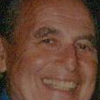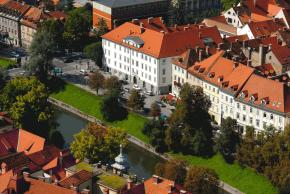It's a good bet few American high school students have ever heard of Slovenia, a tiny nation in Central Europe, just a little smaller in size than New Jersey. Fewer students still would even venture to fly the 4,218 miles from New York City to Ljubljana, Slovenia's capital of only 272,000 residents.
Historical and Biblical literature claim there was evidence of human habitation in Slovenia during the Stone Age, 250,000 years ago.
Seldom publicized, Slovenia, formerly Yugoslavia, is a member of NATO and one of the 17 members of the Eurozone. Slovenia's population of two million goes to the polls for the second time Dec. 2nd to elect a president.
A speculated voting turnout of about 50 percent is expected. An inconclusive Nov. 11 election triggered the runoff when no candidate won a majority of the votes.
The election is important because Slovenia commerce is hurting badly and may need an international economic bailout. If that happens, Slovenia would join a list that includes Greece, Ireland, Spain, Portugal and Cyprus. Global economies could be affected, including the U.S. economy, financial analysts speculate.
The presidential office is largely a ceremonial post in Slovenia, but one that has strong political clout. Chosen for a five-year term, the president heads the army and proposes the national bank chief, always a sensitive post.
In the Nov. 11 election, former Prime Minister Borut Pahor was first with 40 percent of the vote, followed by President Danilo Turk, with 36.2 percent and center-right candidate Milan Zver at 24 percent.
The runoff candidates are Pahor and Turk who was supposed to have been the favorite Nov. 11.
The presidential race also affects political stability in Slovenia, where the government of Prime Minister Janez Jansa faces strong opposition to the reform package it believes will help save the economy, such as pension and labor reforms.
Jansa's government also has pushed for the recapitalization of banks and the creation of a so-called wealth fund to manage state property, but the opposition is demanding a referendum be held on those measures.
Both Turk and Pahor have criticized Jansa's government. But they also have called for unity in the face of the crisis.
Pahor, 49, has said his aim is to restore confidence among politicians and people in Slovenia. Pahor served as the prime minister from 2008 until last year when his government fell over deepening economic troubles, paving the way for a snap parliamentary vote last December.
According to Wikipedia, during World War II, Slovenia was occupied and annexed by Germany, Italy, Hungary, and Croatia, only to emerge afterwards as a founding member of the Socialist Federal Republic of Yugoslavia.
In June 1991, after the introduction of multi-party representative democracy, Slovenia became an independent country. In 2004, it entered NATO and the European Union; in 2007, it became the first former Communist country to join the Eurozone; and in 2010, Slovenia joined the OECD, a global association of high-income developed countries.
History buffs know that remains of a Stone Age human residence were found in Slovenia's Potok Cave on Mount Olševa in the 1920s and the 1930s. This marks the beginning of Paleolithic research in Slovenia, according to Wikipedia.
As evidence of that research, Wikipedia notes a pierced cave bear bone, probably the oldest known musical instrument in the world, has been discovered in Divje Babe cave near Cerkno, dating from the Würm glacial age when the area was inhabited by Neanderthals.

 By
By 
